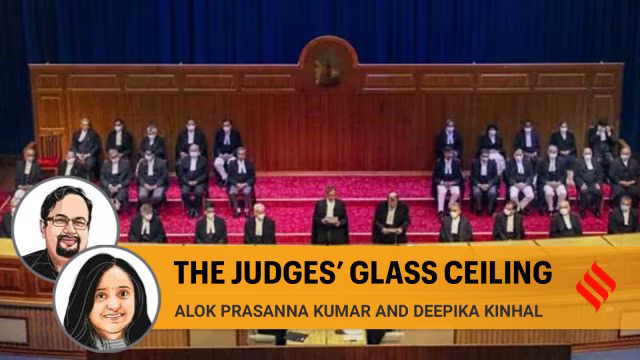
Towards Timely Justice: Navigating Challenges and Solutions in the Aftermath of the Asian Resurfacing Case
Deeksha Katarki
In India, gaps in legal processes and delays go hand in hand. Among the factors contributing to the delays in disposal of cases is the stay of proceedings in the subordinate court on account of interim orders passed by the High Court. Such stays unfold in 2 manners. The court either mandates the stay order to be in place until expressly revoked by a subsequent order. Alternatively, it persists until the next hearing date, requiring the court to order for the stay to be extended on every date of hearing, failing which the stay is automatically vacated.
The Supreme Court recently notified the composition of a five judge Constitution Bench which will hear the reference against the 2018 Supreme Court judgement in Asian Resurfacing of Road Agency P. Ltd. Director v. Central Bureau of Investigation (“Asian Resurfacing”). Asian Resurfacing held that any future stay order will automatically expire after six months, unless an extension is granted through a detailed order, emphasising the exceptional nature of the case. The judgement held that a subordinate court, upon receiving a stay order for criminal or civil proceedings, should schedule a date within six months for the proceedings to resume unless an extension order is provided.
The issue with interim orders, which stay the proceedings before a subordinate court, lies in their frequent misuse by lawyers and litigants. Typically, a senior counsel is engaged to obtain the interim order following which junior advocates are directed to file memos in the lower courts asserting that the proceedings have been stayed by the High Court. Once a stay is granted, there is a tendency among lawyers and litigants to prolong the duration of the stay so that the status quo is maintained. This means that if the matter does not come up before the High Court for an extended period – even if it is more than a year – the proceedings in the subordinate court are constantly adjourned during that time. This practice can and does go on for years. The delays in High Court hearings directly result in prolonged adjudication processes in subordinate courts.
The Supreme Court’s ruling in Asian Resurfacing established that once the six months stay period expires without extension from the superior court, the subordinate court can automatically resume proceedings. This decision effectively eliminates the complacency that lawyers fall into when a stay order is granted and was aimed at removing one of the major contributors of delays. The Supreme Court’s imposition of a time limit was a positive step in combating delays and malpractices. Moreover, it discouraged lawyers from strategically waiting for changes in court rosters before moving their matter before the High Court.
On the flip side, the decision seems to have caused frustration among both judges and lawyers. Lack of clarity with regard to exactly what type of cases are covered by this decision has resulted in confusion. In 2019, the Karnataka High Court held that the Supreme Court’s decision in Asian Resurfacing does not extend to stays on execution proceedings. The court stated that the Asian Resurfacing judgement only applies to stay of proceedings at the stage of “trial” and should not be interpreted to mean that a stay on a judgement and decree by an appellate court is valid only for six months.
However, this interpretation differs from the stance taken by other High Courts. An Advocate on Record recently raised concerns about an instance where following the High Court’s admission of a matter and a stay on execution proceedings of the lower court, the automatic vacation of stay led to the lower court proceeding with auctioning of the judgement debtor’s property. This situation prompted the Supreme Court on 26 September 2023 to express before the Attorney General that the decision in Asian Resurfacing “requires consideration, because this is creating a lot of problems.” The Supreme Court has observed that automatic vacation of stay can result in miscarriage of justice in certain cases, possibly providing a reason for the court to refer the matter to a larger bench to address and clarify these aspects.
The constitution of this five-judge bench presents an opportunity for the Court to differentiate between various case types and provide strict time limits only for certain cases. In civil matters which predominantly involve private rights, when a stay is obtained by one party, the opposite party has every right to file an application to vacate the stay order if they feel that their rights are compromised. The current six-month rule may be causing unnecessary strain on the system with multiple last-minute applications being filed before the High Court seeking an urgent hearing date. This trend persists even in non-urgent cases where the involved parties themselves are in no hurry to vacate the interim order, solely due to the impending expiration of the 6-month time period. For advocates in civil matters, this may be a matter of annoyance as they would prefer to prioritise more pressing cases. Judges, too, may find it inconvenient to be compelled to hear a matter purely due to the expiration of the six-month period, irrespective of its urgency.
However, for certain criminal cases where serious offences may have occurred and the public at large is concerned, the Supreme Court’s imposition of strict timelines seems appropriate. The six-month time limit in these cases can enhance accountability within the criminal justice system. The potential benefits of such a rigid timeline likely outweigh any inconveniences that may arise.
The current reference to a constitutional bench confers a possibility for the Supreme Court to refine and expound on the principles that were laid out in Asian Resurfacing. Through the integration of explicit guidelines and the conceptualisation of case categories, there is potential to challenge and reform the prevailing culture of interim orders. These reforms could usher in swift justice, cultivating a more efficient and responsive legal system.
—
Deeksha Katarki is currently serving as a Project Fellow with the Justice, Access, and Lowering Delays Initiative (JALDI) team at Vidhi. Her primary focus is on the project “Civil Litigation Process for the Digital Age.” She graduated with a B.S.L.LLB. degree from ILS Law College, Pune, in 2018 and then went on to work as a litigation associate with Dua Associates.

